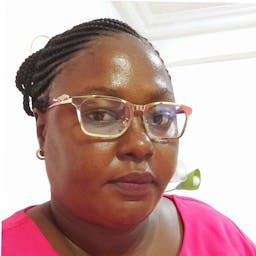2014/2015 Rescue Women's Scholarship Ends Well; All Girls but One Promoted to Next Class
May 28, 2019
Story
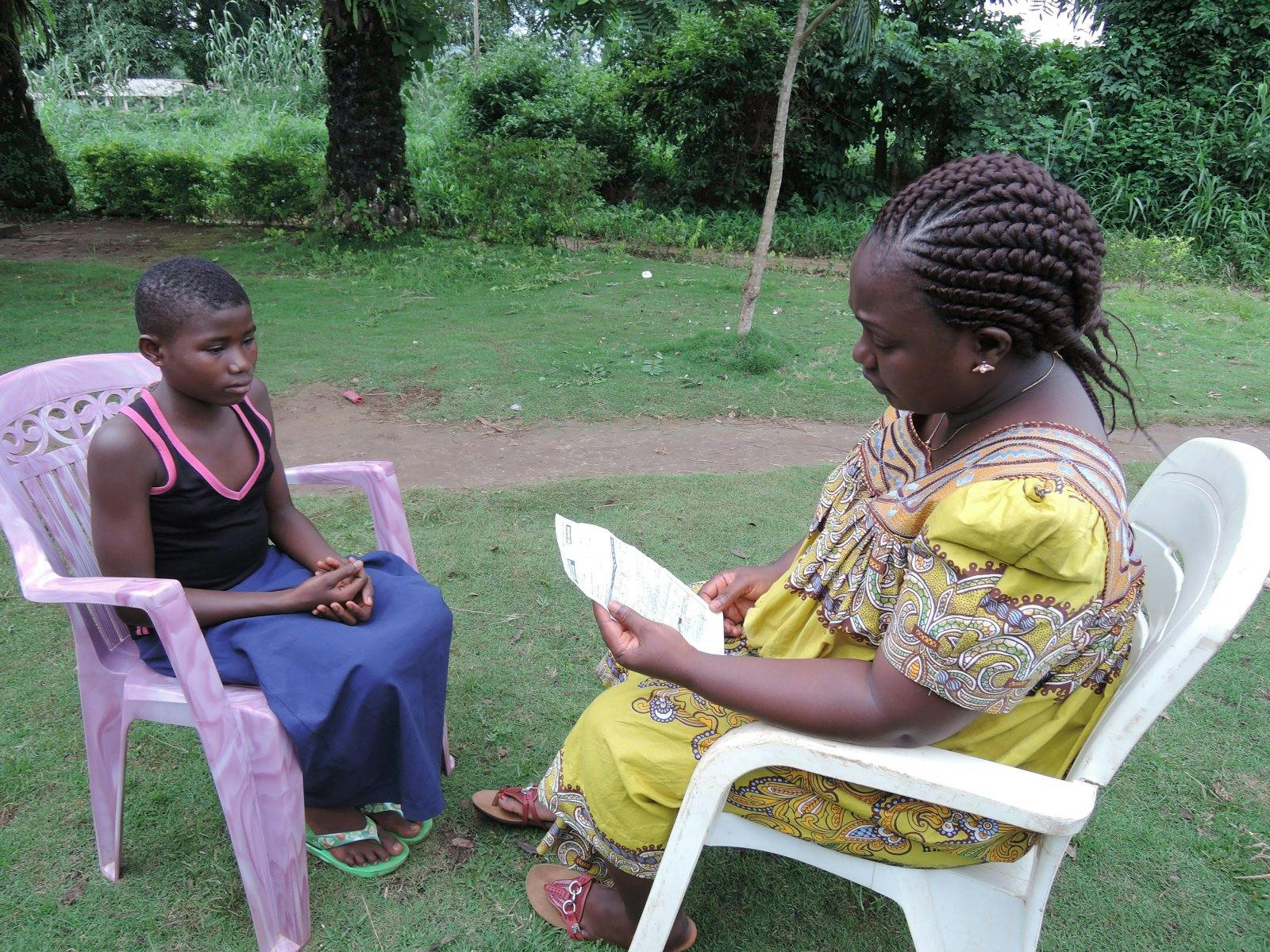
Susan Ngasi - Scholarship beneficiary on a one-on-one mentoring session with me
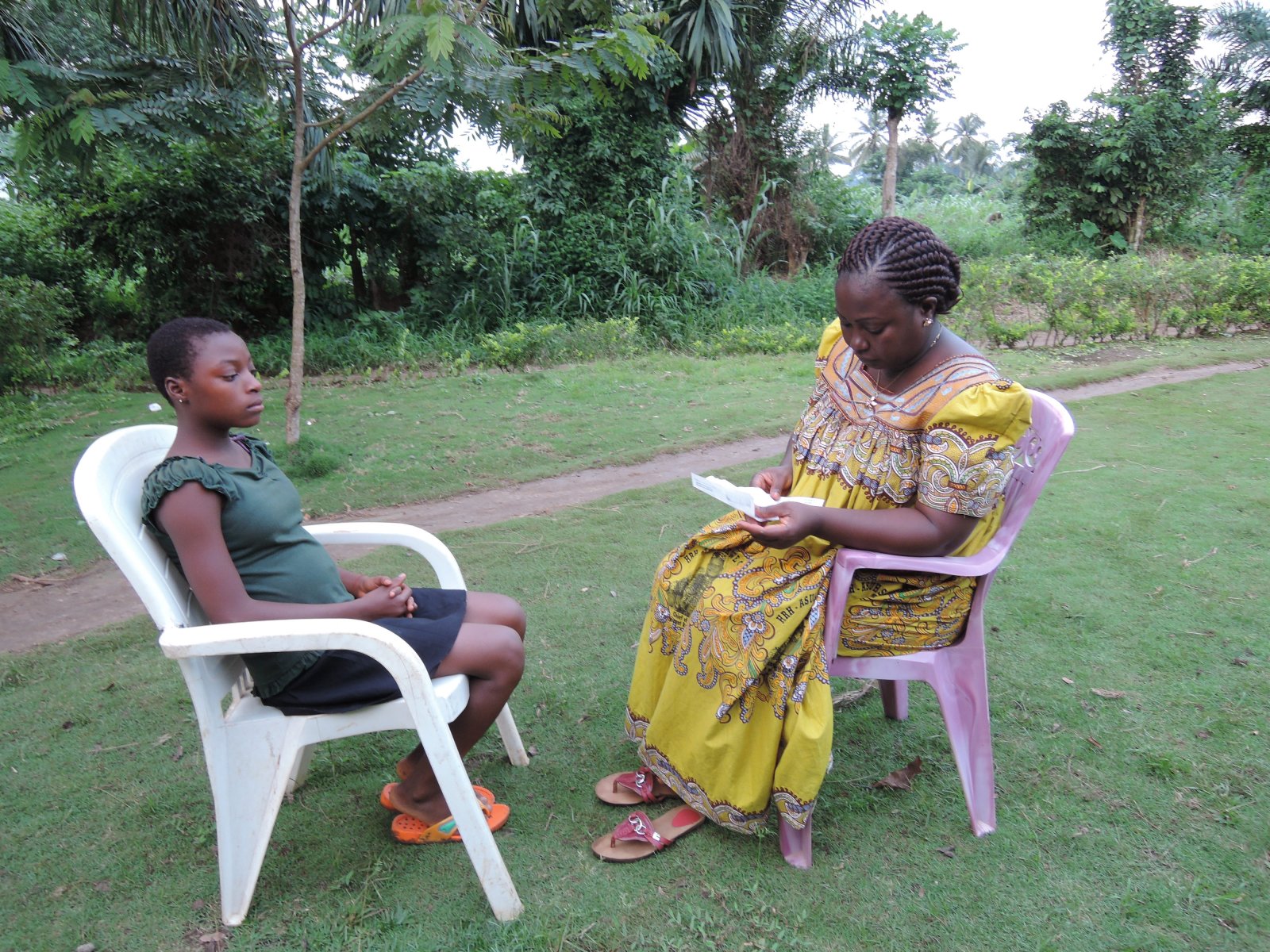
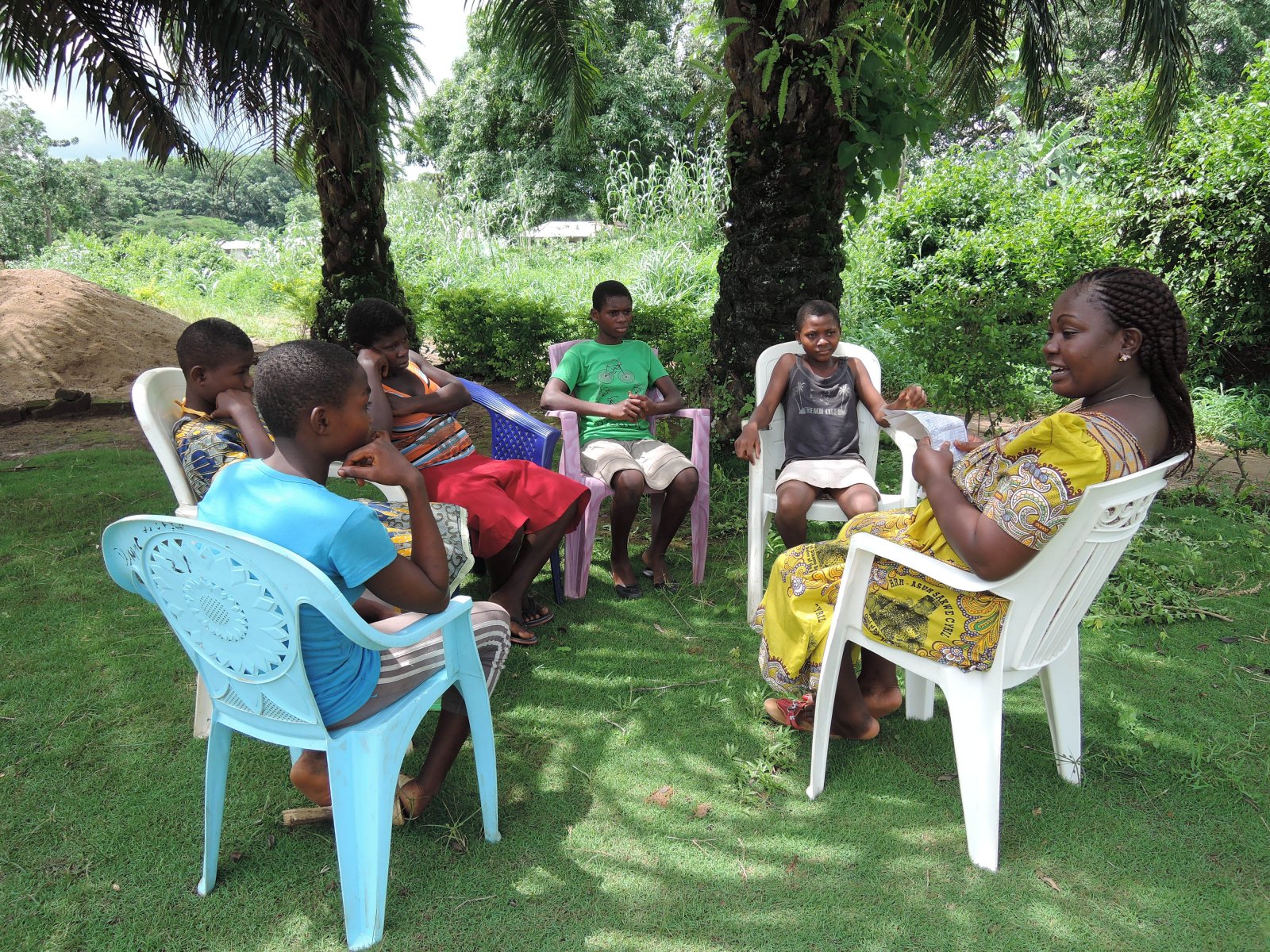
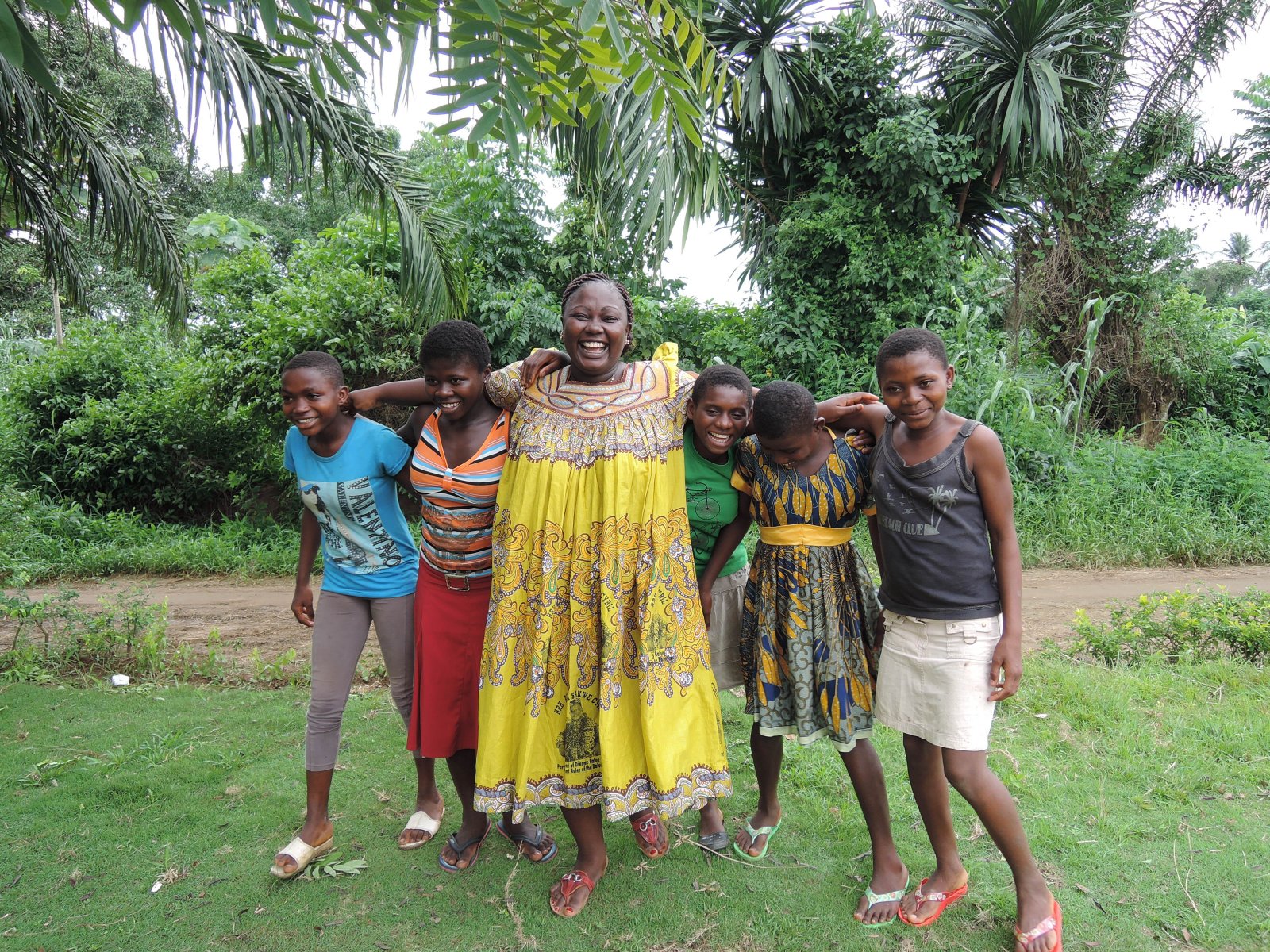
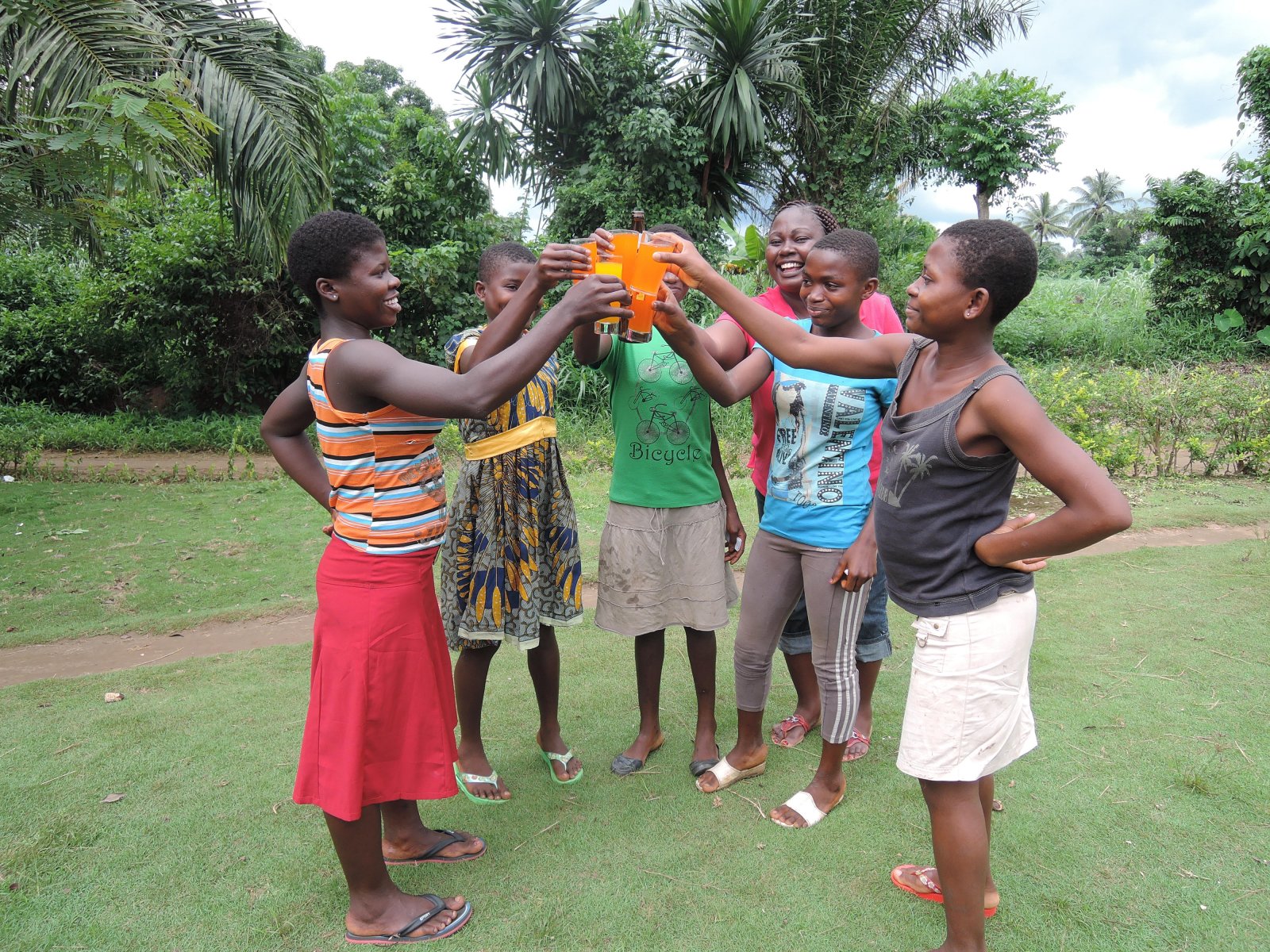
It was an all-night journey that began from 10pm through 10am the next day. The journey from Bamenda, in the North West Region of Cameroon, to Bai Kuke in the South West Region of Cameroon can measure over 300km (over 200miles). I turned from one position of my sit to another. I couldn't catch a minute sleep. My entire thoughts were focused on meeting the beneficiaries of the Rescue Women Girls Scholarship for Secondary School girls for the 2014/2015 academic year. I kept wondering about how their end of year (promotion) results were going to look like. I could feel my heart beat beating hard when ever the thoughts of one or many of them failing crossed my mind. I was even more scared to think that some could have dropped for one reason or the other.
One hour before arriving Bai Kuke, on Friday 3rd July 2015, my anxiety level reached maximum. The sweet breeze, generated by the Pamol Plantations rubber trees, was unable to calm down the high level of anxiety as the bike rider rode at full speed to enter Bai Kuke. Before my feet stepped down in front of my father's house, which is one of the first houses at the entrance of Bai Kuke, I was already calling a little cousin out to go and call for all the scholarship girls to come and see me ASAP. Before I could finish to clean up the mud that covered all of my feet and part of my upper body from the extremely muddy and bumpy ride to Bai Kuke, the girls were already popping in. There was this tense smile coming from their faces as they came in to greet me. The smiles, though, was an indication that it was not all bad. I became even more tensed. They also became too. I am sure my mood influenced theirs. But I was sure to take any outcome the way it was supposed to be because I believe in 'everything happens for a reason' kind of theory.
I pulled out two chairs and placed in the open yard in front of my father's house, and one after the other, I had a discussion with all of them; looking at their report cards, encouraging, and mentoring them. Jeez! Praise the Lord! They all made it to the next class. Their results were not the best but at least they were promoted on trial. It really didn't border me much that they didn't do extremely well, not because I don't want them to do well, but because the scholarship was not for the very intelligent girls in the community but for the poor and vulnerable girls who spend more time in the farms, markets, and also cooking in their households. They tried their best, I convinced myself.
They all scored 9. 50 to 10.23 average on a scale of 20. To me, it is not about their average, it is about the fact that despite their busy schedules, they managed to spend one [more] year in secondary school. As I counseled them and encouraged them, then came the time for tears shedding. The girls revealed sorrowful reasons why they couldn't pass very well in School.
Robota Yaneni, a form one beneficiary whose mother died of a mental disorder and father unknown, is living with an aunt who is seriously sick. She said she doesn't have the opportunity to read.
"My aunt refuse that I should not use the [kerosene] lamp to read at night. She tells me wouldn't have money to buy kerosene if we run out of it. It is only at night that I can read because I spend my whole day cooking after school. But I don't have the opportunity to read because of no lamp," she says with tears running down her eyes.
I looked at her, and an uncontrollable tears came crashing down my left cheek. I encouraged her to stay strong. Kerosene is only $1 a liter, I told myself. But again, deep down inside me, I know some families live below $10 a month in Bai Kuke and so purchasing kerosene can be one hell of a challenge. I promised her I was going to buy her a solar lamp, even though I am not very sure of where this money will come from. I am positive.
Emilienne Moroko, is another form one beneficiary, whose both parents have died. Her father was shot by a fellow hunter in the middle of the night when they went hunting in the village. His friend thought he was an animal. Emilienne is staying with her uncle and wife. She has a similar problem like Yaneni.
"My uncle's wife will never allow me use the [kerosene] lamp to read, never," she says. "Besides, I am the one who prepares food for the family of 8 every day. Auntie, come and beg my uncle's wife to allow me use the lamp to read, or you buy my own lamp. I am not happy with my result."
That was even more painful for my ears to hear. I couldn't stand the pain in her heart, and the innocence on her little cheek. I also promised her that if I have money, I will buy her a kerosene lamp and five liters of kerosene.
Prisca Angu, is a form three scholarship beneficiary who is solely sponsored by her farmer mother. Her father died several years ago. She cried profusely as she tried to tell me why she cannot pass well.
"Auntie, I go to the farm everyday, six days a week," she says. "Whenever I close from school, I go and meet my mother in the farm. When I come back from the farm, I cook and prepare my mother's cassava paste business that she does to raise income. Before I finish doing all my day's chores, I am already too tired to read. Please, advise my mum to give me time to read and attend evening classes, because she doesn't allow me to attend evening classes because of farm work."
Oh my God. Angu's story touched me to my bones. I consoled her and again made her understand that the mother is the sole breadwinner of her family and so she is trying by all means to have her help her in her income generating process. However, I promised her that I was going to see her mum and talk to her.
Susan Ngasi, hails from a very poor home, with a mother who is epileptic and a father who is barely struggling to survive. Ngasi is the smartest of them all. She is intelligent and has a lot of common sense. She told me her results will never be good provided she keeps using the kerosene lamp.
"I have eye problems. When ever I read using the [kerosene] lamp, my eyes hurts and water pours out of them. My father promised buying me solar but he hasn't," she told me.
Ngassi's problem was very obvious. Her eyes are smokey.
Rudy Pende, is a form two student whose father is unknown and she is taken care of by her struggling mother. Rudy says she works a lot.
"I go to the farm and cook everyday till late in the night," she says. "I can't wait to pass my O'levels so that I can go to a high school out of Bai Kuke. This will relieve me of some of the chores."
Rudy says she will struggle to read and make it.
Elizabeth is another form one student whose mother is toiling in the farm to put food on the table. like the others, she says she usually lacks kerosene to light up the lamp to read. She promised to do well if she can get kerosene regularly.
Interestingly, all the students complained that their guardians/parents did not buy them text books. But they were happy that they were never sent home during fee drive.
Whoa! The stories of the girls filled my thoughts. But the thought of Meline Ekpe spoiled my mood even more. Ekpe was the biggest beneficiary. She was in form four when she was awarded the scholarship. Little did I know that she was one month pregnant already. Ekpe has put to bed. I took a strole to their house to see her. This is what she said.
"I lost hope of ever going back to school because my school fees for the previous year was never paid. I went ahead to make the mistake of becoming pregnant, but if given the opportunity, I will go back to school," she said.
Yes, Ekpe, you will definitely go back to school, I told her. Becoming pregnant and having a baby is not jail time, you will go back when the time is right.
All in all, it went well. My girls are moving forward, to the next class. My greatest worry is how to move forward. How to put money together for all of them and even more girls who are hanging in the houses, becoming pregnant, becoming infected with HIV and other STIs, marrying early, all because they don't have the opportunity to attend secondary school. I am hopeful that I am going to be able to the girls another opportunity to spend another year in secondary school.
This year, I am looking forward to a total budget of about 550,000frs ($1000) this year to support the six girls, buy them solar lamps, and possibly increase the number to ten girls. Rescue Women - Cameroon will welcome any donation from potential donors. And we would appreciate that you kept girls who lost hope in education, in school for another year. You would one day see this girls holding national and international positions and this alone will refresh your soul.
All is well that ends well!
